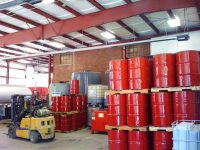Interested in getting started with oil analysis? There will never be a better time than now. Eurofins TestOil oil analysis experts routinely save industrial customers both time and money with evidence-based advice on when and when not to change the oil at their plants. One of the many ROI benefits of professional industrial oil…
Read more
Getting Started with Oil Analysis? Learn How Fewer Oil Changes Deliver ROI.





